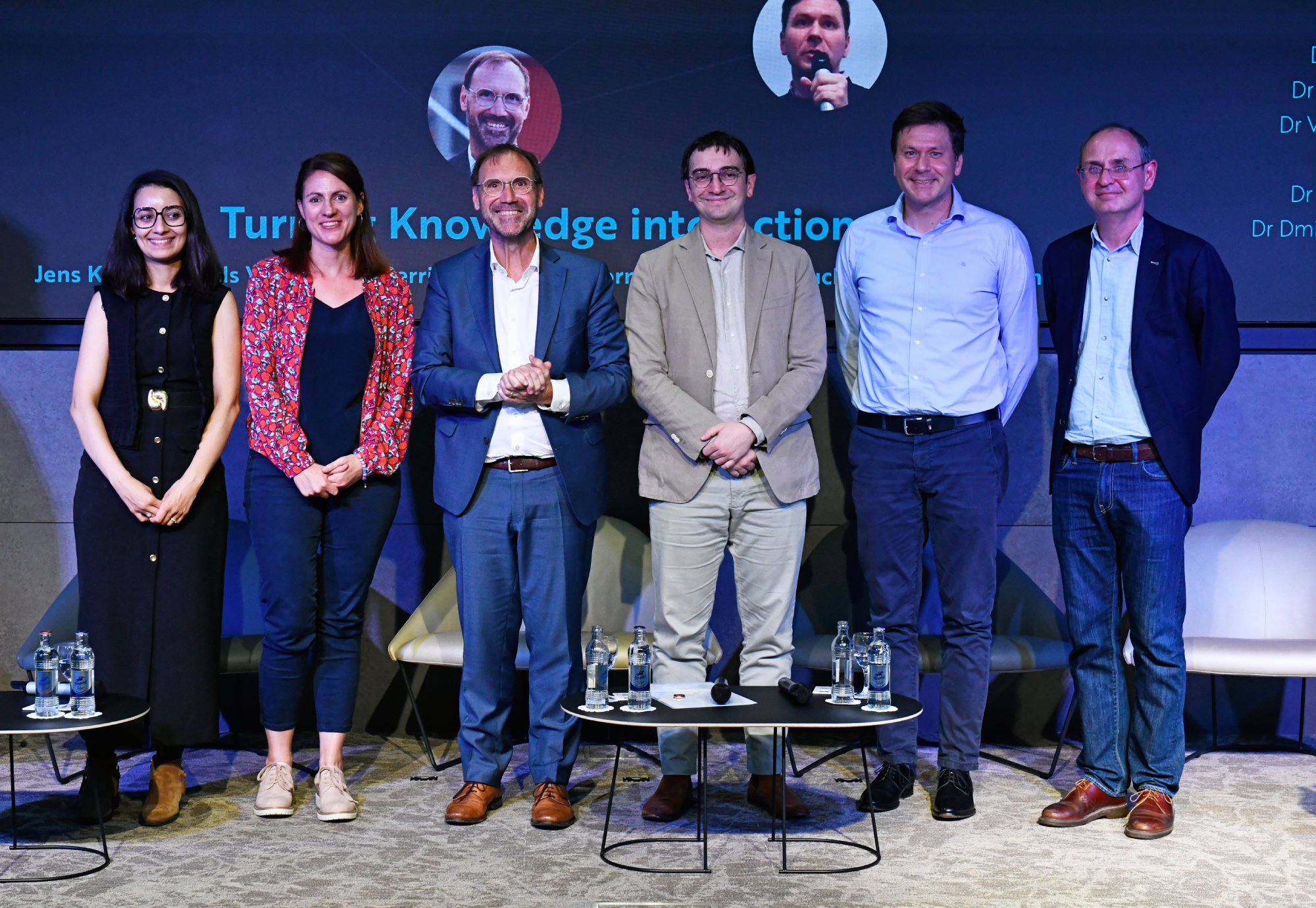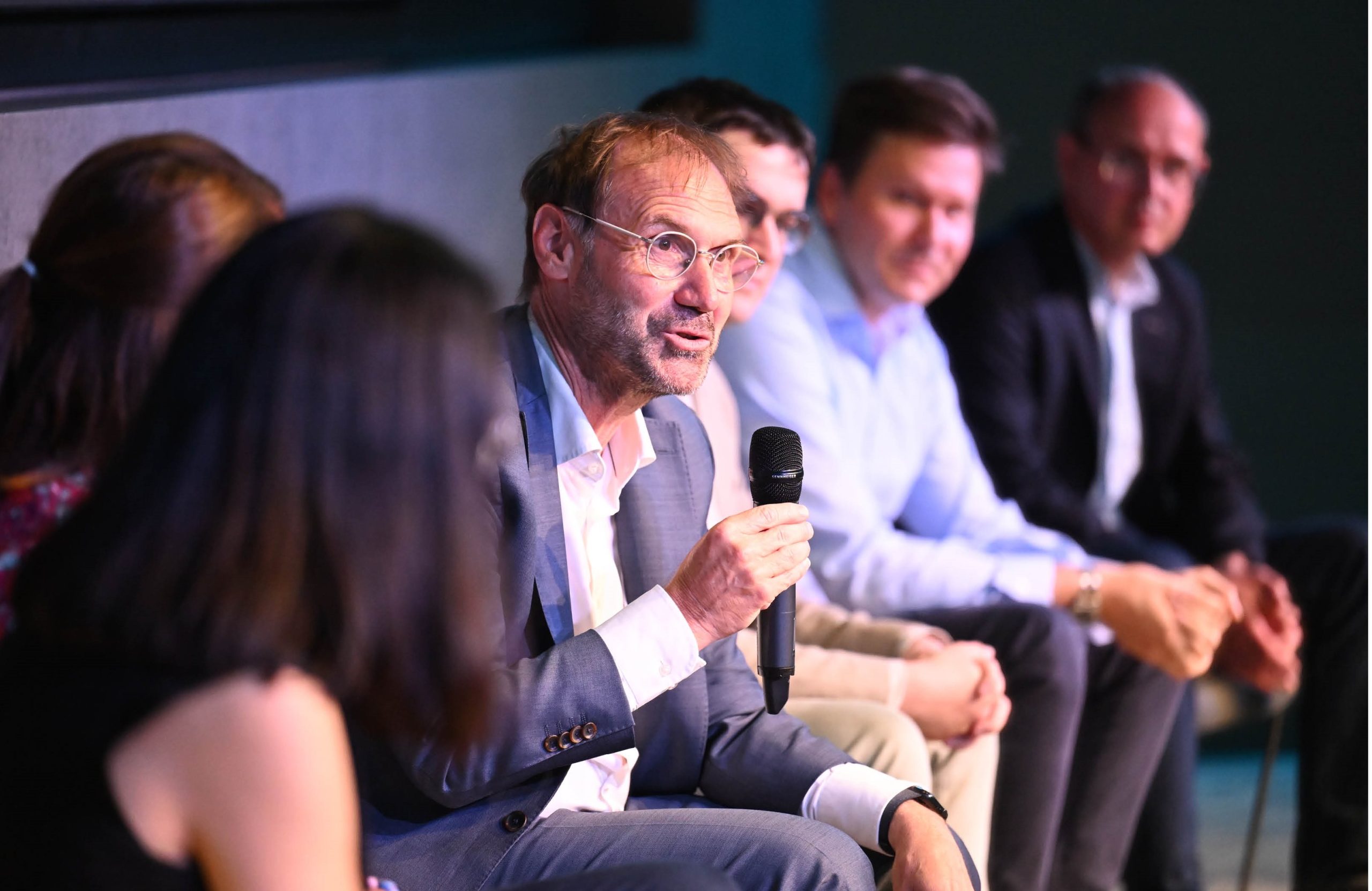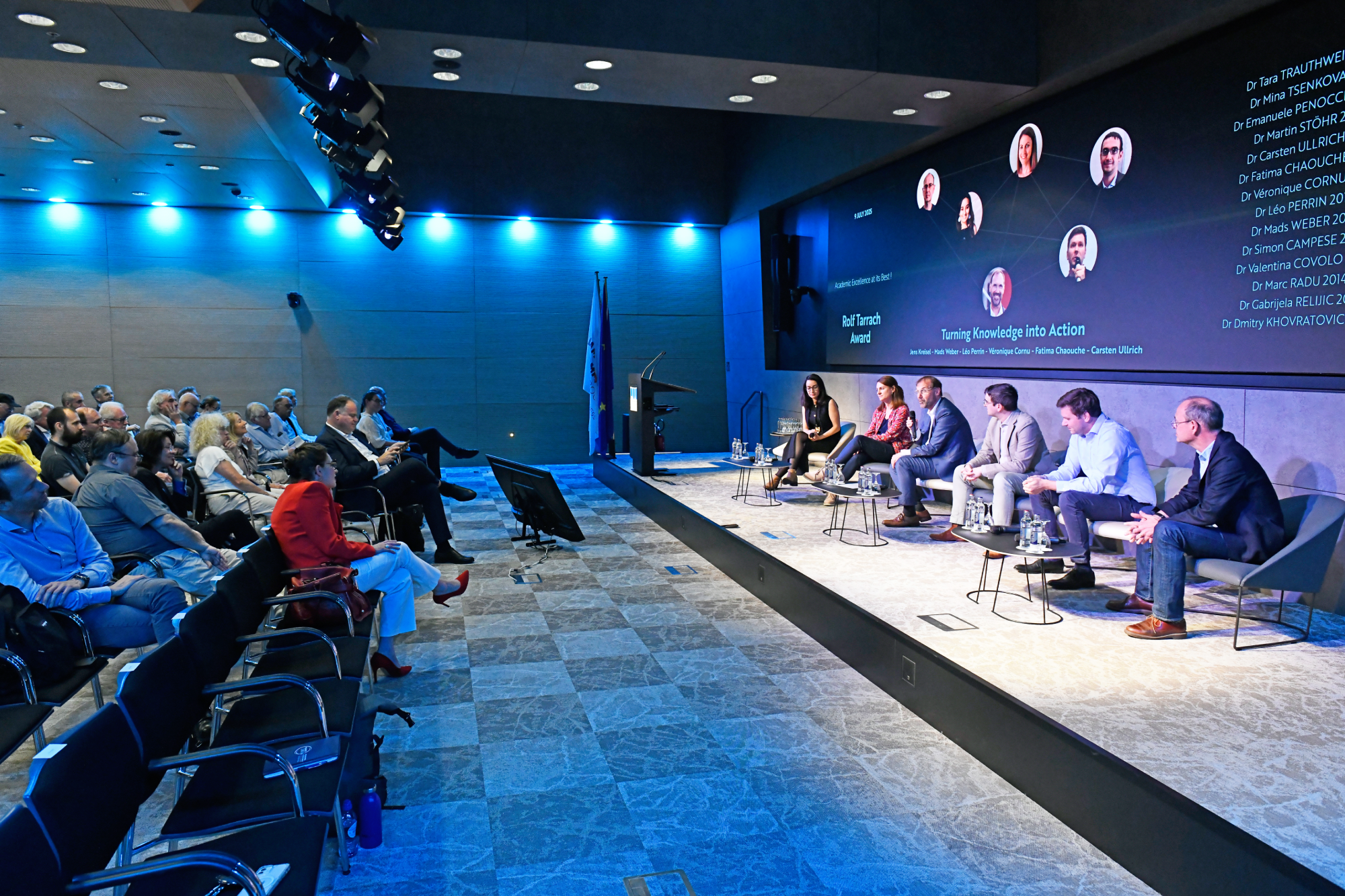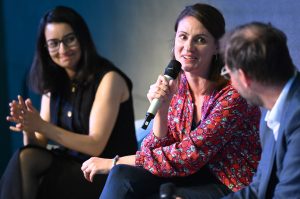“The University of Luxembourg now has 1000 PhD students”, started Prof. Jens Kreisel. “They are the powerhouse of our research and also of the innovation in the country.” Around him were five PhDs alumni, former laureates of the Rolf Tarrach Prize. Today, some of them are working in a startup, on an ERC grant or the at Cour administrative. Through their PhD, they chose to address key challenges of todays and tomorrow’s society and committed to a career path that would inherently change their way of reflecting and working.
Fatima Chaouche (Award Winner 2020 – PhD in Law), started the conversation looking back what doctoral studies enabled for her, on a personal level. “Doing a PhD has completely changed my mind, who I am. It gave me the confidence, the resilience and the patience to digest feedback. I had to accept being challenged and critiqued. It was important to make you and your work better, while also understanding that you are not defined by your work.”

Overcoming criticism to improve and move forward
Véronique Cornu (Award Winner 2019 – PhD in Psychology), illustrated this with a tough experience. “My first paper was rejected after peer review. This critical feedback is something I had to learn to deal with. As a human being, it is very hard to take it, but in the academic field it is essential. I revised my paper and wrote a better draft. It was published and is now my most cited paper.” She is now a clinical neuropsychologist at the Centre pour le développement des apprentissages (CDA) for children and adolescents with learning disorders. She also collaborates with the University on research to connect clinical practice with scientific progress. Unexpectedly, her research now impacted her own, personal life. “As part of my PhD, I’ve developed an application for young children to learn mathematics without language, so that we have no language barriers, which is very important in a multilingual country such as Luxembourg. This app is now used all over the world, and my little daughter is also working on it in preschool.”
Surprising conversations, impactful discoveries
“In research, often what we find isn’t what we were looking for”, continued Léo Perrin (Award Winner 2018 – PhD in Cryptography). One must accept to deviate from the initial path, a level of uncertainty and potentially more U-turns or dead ends until, at last, their efforts pay off. His work at Inria focuses on symmetric cryptography and is currently supported by an ERC grant (ReSCALE), continuing the path started during his PhD. “And that happened to me several times in my career.” Mads Weber (Award Winner 2017 – PhD in Physics), insists on the power of discussions. “A lot is about connection with people. The feedback that I got in moments that were important. The freedom of off-topic discussions can lead you to the right direction, help you to carry on, and to concrete successful research.”
Starting a PhD in the middle of a career
Most start a PhD directly after a Master, but some do it beside their job, in between a job, and even after retirement.
“I was working for 20 years in the private sector, before I decided to do something completely new and a PhD” said Carsten Ullrich (Award Winner 2021 – PhD in Law). “My supervisor was younger than me, and it helped me to start fresh. Developing my sense of curiosity was what helped me pushing the envelope.”

“Many people are asking how we can educate people if we do not know what the jobs will be in 5- or 10-years’ time”, said Prof. Jens Kreisel.
“We need more than specific disciplines such as law, sociology, or physics. Being able to write, to analyse, to contextualise, to criticise and accept criticism. This will be important for any job tomorrow. This is the hidden curriculum: skills that make a difference later.”
The hidden curriculum: essential skills for the future
For the former award winners, these skills became essential to continue their thesis. “The process shapes how you think, work and approach a problem”, described Véronique Cornu. “Project management and the ability to work independently are also skills that I acquired during my PhD.”
“The further you advance, the more you acquire these skills and in-depth knowledge, you start to see where the problems are immediately, what really needs to be answered”, echoed Fatima Chaouche. “These four years has been a great preparation to work at the supreme administrative court in Luxembourg, where we have to solve very complex tax cases that have never been solved before.”
For Véronique Cornu, these few years have a lasting impact on society. “Nowadays, I am working with children with learning difficulties who struggle to learn math. What I’ve studied over years in theory lets me support them in practice.”

Doctoral education at the University of Luxembourg offers a creative academic environment and state-of-the-art infrastructure. The ecosystem is designed to support doctoral students to produce high-level research and further their careers, whether in academia or in the industry. Through an information portal, holders of a Master’s degree can apply to vacant doctoral positions or propose their research project from scratch at the Doctoral Schools and Programmes.
